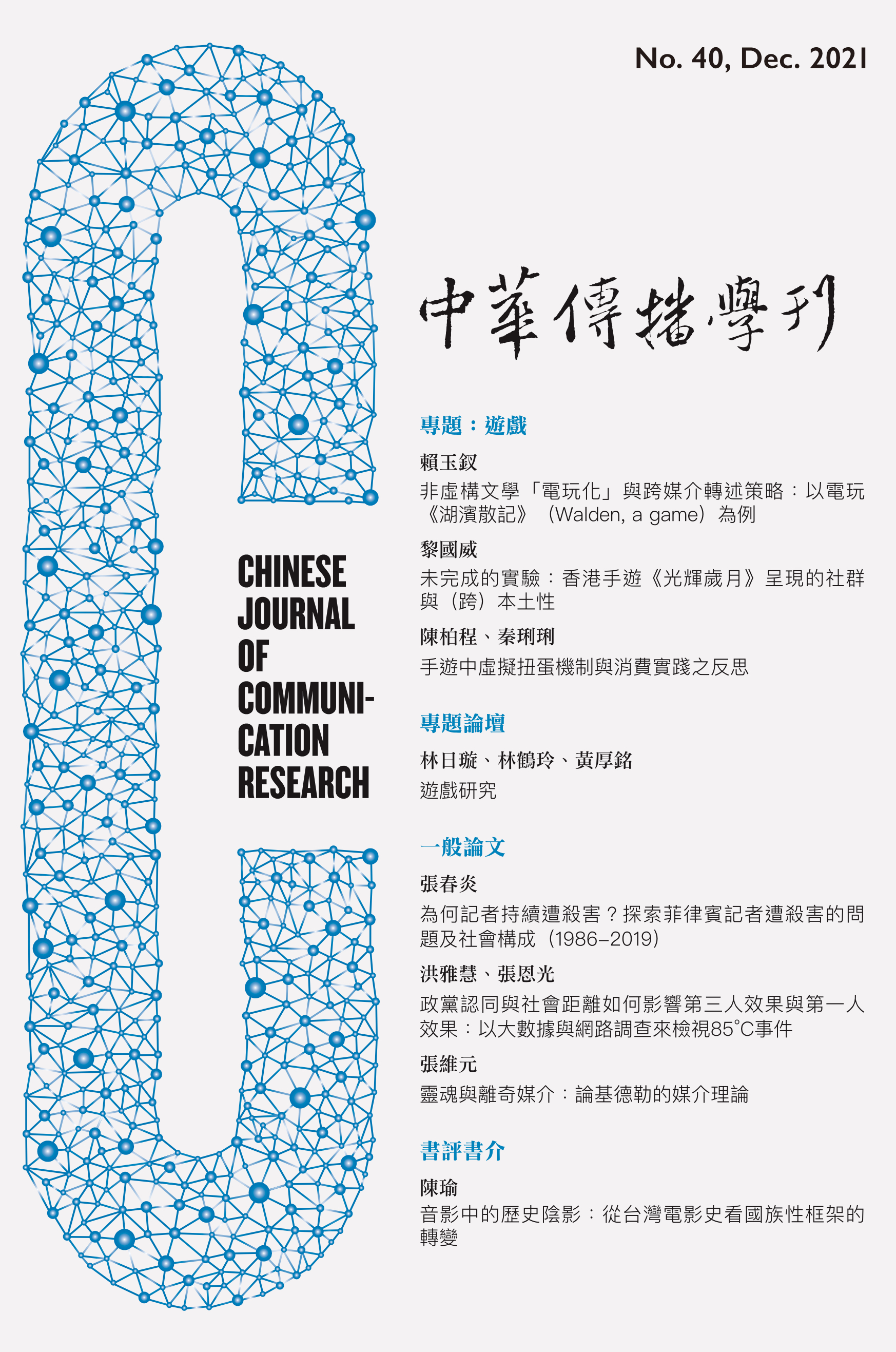 閱覽人數: 2640
閱覽人數: 2640
December
2021
No. 40
遊戲
Games頁數:231 - 270
作者(中)
張維元
作者(英)
Wei-Yuan Chang
關鍵詞(中)
基德勒、媒介理論、精神分析、論述網絡、離奇、靈魂
關鍵詞(英)
discourse network, Kittler, media theory, psychoanalysis, soul, uncanny
中文摘要
在弗里德里希.基德勒(Friedrich Kittler)的理論中,「媒介」持續地將「人」轉化為,型態與功能皆有所差異,但同樣都可以輔助「媒介」之運作與發展進化的「文化假體」。本文以「離奇」的概念 對這一奇特的人媒關係進行詮釋,並由此,將基德勒的媒介史書寫視 為是一個「離奇媒介神話史」。在這一詮釋下,我們將看見,1800、1900與2000論述網絡這三個媒介紀元間所隱含的連續性,亦即,「媒介」對「人」這一文化假體進行建構與利用(1800)、分解與吞噬(1900),並於最終將其遺棄(2000)的離奇連續性。
英文摘要
In Friedrich Kittler’s media theory, “media” tend to transform people into their cultural prostheses. Although the cultural prostheses of people appear in different forms and function differently across historical periods, they all serve as auxiliary instruments that can enhance media sustainability, development, and evolution. This paper interprets this peculiar human–media relation by using the psychoanalytical concept of the “uncanny.” This paper conceptualizes Kittler’s writings on media history as an uncanny mythography of the media. Through this mythographic lens, the continuity among the three media discourse networks of the 1800s, 1900s, and 2000s is detected. This is an uncanny continuity in which people were constructed and used in the 1800s, torn down and devoured in 1900s, and finally abandoned in the 2000s, all at the hands of the media discourse networks.